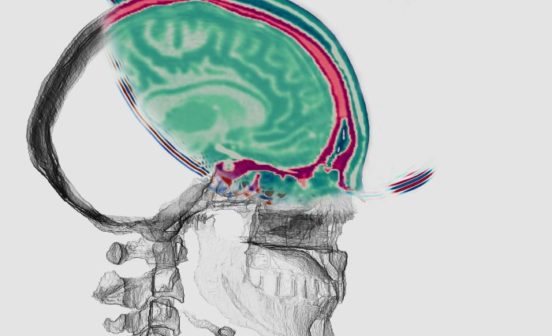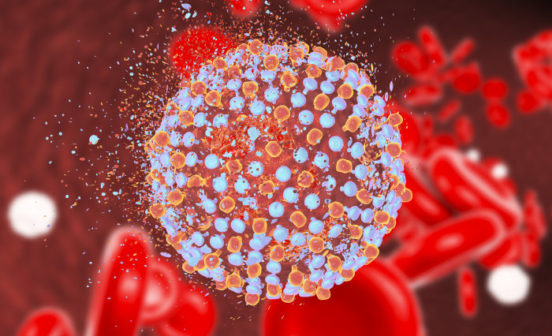Prevention International research web to fight deadly Strep A infections

Each year, around half a million people, including many children and young people, die around the world because of serious group A streptococcal (Strep A) bacterial infections. While most cases are relatively mild – affecting only the skin or throat – some infections can lead to deadly sepsis or autoimmune damage to the heart. There is currently no available vaccine for Strep A. To find a remedy to this, Imperial and US scientists are spearheading a multi-institution network to research bacterial causes of sepsis and heart damage in children.
The newly launched iSpy Network (immunity to Streptococcus pyogenes) brings together 28 investigators from 11 countries worldwide, including experts in immunology, infectious disease, epidemiology, vaccinology and experimental medicine. The iSpy Network is led by Imperial College London alongside the University of California San Diego (UC San Diego), supported by funding from the Leducq Foundation.
Imperial’s Professor Shiranee Sriskandan from the Department of Infectious Disease, who is also a member of the NIHR IMoerial BRC Imoercetion and AMR Theme, heads one of two iSpy sub-networks, called iSpy-LIFE. She comments: “In recent years we’ve seen a concerning upsurge of Strep A in the UK, with a significant number of deaths among children. Yet the overwhelming burden of disease is shouldered by middle- and low-income countries (LMICs), where we see more invasive disease and children getting persistent Strep A infections, which can lead to debilitating rheumatic heart disease.
“Through the iSpy Network, we will collaborate widely – including with partners in The Gambia, South Africa, Brazil and Fiji – to gain a better understanding of the body’s immune response to Strep A and determine the most effective way to vaccinate against Strep A.”
UC San Diego’s Professor Victor Nizet leads the second iSpy sub-network, called iSpy-EXPLORE. He comments: “This five-year project pairs many of the world’s most experienced Strep A researchers with top immunologists who together will deploy a wide array of state-of-the-art techniques to probe Strep A immunity at unprecedented resolution. This new information should have a major impact toward alleviating the burden of Strep A across the world.”
A global burden of disease
Group A Streptococcus (or Strep A) commonly causes sore throat and skin infections in younger children and, more rarely, can trigger sepsis and toxic shock when the bacterium enters the bloodstream or tissue. Repeated exposure to Strep A infection can also cause autoimmune damage to the valves of the heart, known as rheumatic heart disease (RHD), which affects an estimated 50 million people worldwide, with most living in LMICs.
Professor Liesl Zuhlke, a Paediatric Cardiologist at The University of Cape Town and iSpy team member, comments: “The RHD patients we see in LMICs generally present with advanced disease and complications such as heart failure. Many require cardiac surgery or percutaneous intervention which are often not available, resulting in significant mortality and morbidity and incurring huge out-of-pocket costs to families and communities. We desperately need data on transitions between the various forms of Strep A diseases and how we can intervene to prevent these manifestations.”
Unravelling Strep A immunity
Strep A is highly transmissible and spreads from person to person mostly via the respiratory route from sore throats. Unlike children, adults are mostly immune to Strep A sore throats and skin infections. However, both groups are very susceptible to the invasive form of the infection.
Professor Sriskandan comments: “At present, we don’t fully understand how immunity to Strep A develops over time and if there are specific antigens (parts of the bacterium) that are more important for targeting by the immune system or future vaccines. It’s also unclear how overreaction by the immune system to Strep A – what we might call ‘bad’ immunity – leads to RHD and how that differs from the ‘good’, protective immunity we’d like to see.”
The iSpy-LIFE sub-network will address this through studies in young children, school-age pupils and adults to investigate how ‘good’ immunity to Strep A develops in children after they naturally acquire infections over time. It is hoped this will give a better understanding of what makes people genuinely immune to Strep A, and how a vaccine might emulate and accelerate that immunity in children.
Meanwhile, the iSpy-EXPLORE sub-network will investigate the nature of protective immune cell and antibody responses in experimental animals that receive the most promising Strep A vaccine candidates currently in development. It will also examine how the human immune system reacts when healthy volunteers are experimentally challenged with Strep A infections. Taken together, the work will help scientists understand how we might measure ‘good’ and ‘bad’ immunity to Strep A, paving the way for a future vaccine that protects against strep throat, invasive infections and RHD.
The iSpy Network is being supported by the Leducq Foundation – which is dedicated to improving human health through international efforts to combat cardiovascular disease.





